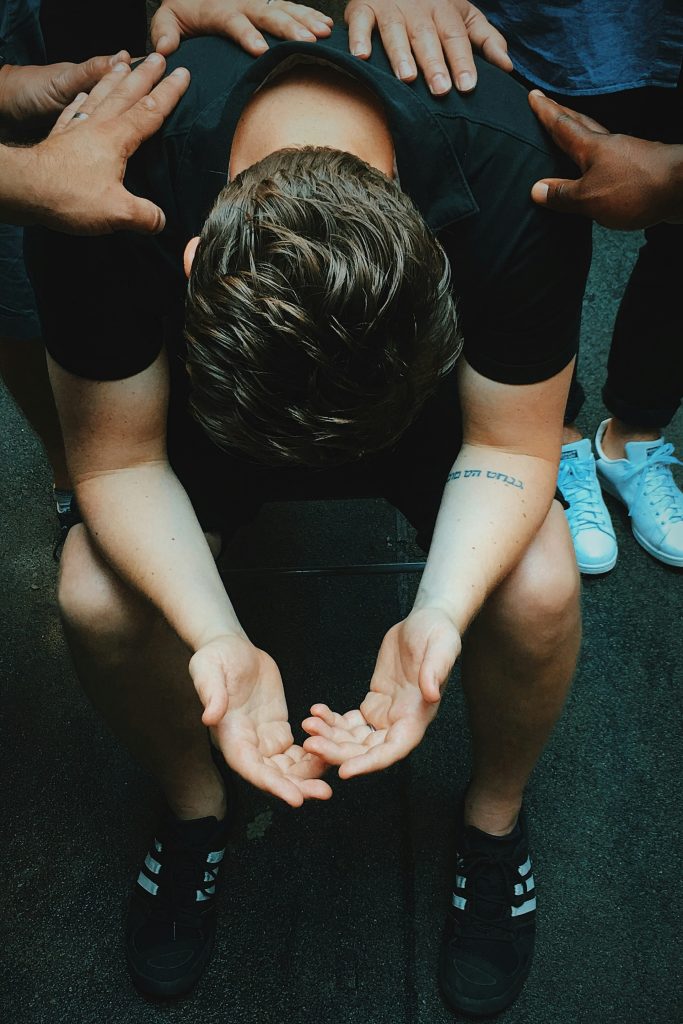A few years ago, a therapist told me he didn’t think I’d developed my relationship with masculinity. I agreed with him. I think my experience of what masculinity looked like as a grew up led me to reject it as something that I saw as being largely negative.
I reflected about my time at an all-boys secondary school, and how nasty a lot of the behaviour I experienced was. There was a general atmosphere of aggression, both physical and verbal. I felt unsafe a lot of the time, especially as I was the third smallest out of 120 boys.
There was a lot of ‘banter’, in the sense of putting each other down for the sake of a laugh or to feel superior. Another way of putting it would be collective, continuous bullying. Anyone who put a foot wrong or stood out in some way would be mercilessly shot down.
A lot of us would get the train home with girls from the local girls’ school, and when we came into contact with them, suddenly the boys’ behaviour became so much more friendly. I just couldn’t understand it. Why can’t they treat each other like this all the time?
Bullying and homophobia
Homophobia was also constantly hanging in the air. The word ‘gay’ was used to mean ‘bad’. Nobody had come out as gay by the time I left that school at age 16. If anyone had come out, I imagine they would have expected to be mercilessly bullied and humiliated.
I’ve got vivid memories of saying something in class and someone shouting ‘Shut up, Hix! You’re gay!’
I remember a time after a rugby match that my own team picked me up and dumped me in a huge puddle. They thought it was funny. I had a panic attack and started hyper-ventilating.
I did tell my mum that I was being bullied, and she put a stop to some of it by speaking to a teacher. But mostly, I felt too ashamed about what I was experiencing to talk to anyone about it.
I found it really hard to connect with people. I felt very alone, particularly for the first two years at that school. I even remember thinking that, if I stepped in front of a car, nobody would have cared. Of course, they would have done, but that’s how rejected and miserable I felt at the time.
What made it more painful was seeing how many friends my sister had, and the closeness and warmth I saw between them. It made me wonder if there was something wrong with me.
Looking back, it’s hard to think who my positive masculine role models were among my peers or in the media.
So given how negative my experience of so much male behaviour was, it made total sense to me that I hadn’t developed my sense of masculinity. Either consciously or unconsciously I’d rejected it as the opposite of who I wanted to be.
What even is ‘masculinity?’
In 1976, sociologist Robert Brannon came up with four key traits of masculinity in US culture. It became a key text in gender studies.
I think it’s quite a neat way of summarising what the traditional idea of masculinity is, and it helped me make a lot of sense of why my time at the boys’ school was so unpleasant.
- No sissy stuff: no vulnerability, openness or showing any weakness. This involves concealing emotions and not showing kindness or affection.
- The big wheel: having high status, being successful in business and sport, being strong, and having sexual prowess.
- The sturdy oak: being tough, self-reliant, stable and confident. Having little need for emotional support. Being unflappable.
- Give ‘em hell!: being aggressive, daring and willing to use violence if necessary.
I had the idea that I’d shrugged off this macho idea of masculinity as not relevant to me – not part of who I wanted to be. But, when I really reflected on it, I realised that these ideas have all affected me deeply in multiple ways.
1. Emotional disconnection
When I first started using the Headspace meditation app, Andy Puddicombe, who guided the meditations, would alway start by asking me to notice how I was feeling in that moment.
Every time I said the same thing to myself: ‘neutral’. ‘Neutral?’, I thought. How boring! I don’t want to spend my whole life feeling not much of anything. It made me realise how emotionally disconnected I was and how I’d always said I was ‘fine’. I’ve since discovered that ‘fine’ is an acronym for ‘Fucking Incapable of Naming Emotions’. For most of my life, I’ve either not known how I am or not been willing to say, for fear of contravening rule number one: don’t be a sissy!
The classic emotions for men to repress are sadness and anxiety, because they’re seen as weak. Anger is the only one that is seen as acceptable, because it’s an aggressive emotion. The Incredible Hulk and Rambo get angry, but they never shed a tear.
But I repressed that one too! I had a fear of upsetting people or causing an argument, so it’s only in recent years that I’ve been able to find ways of telling someone they’ve crossed my boundary.
2. Shallow friendships
I made two female friends in my first year of university who were a joyous revelation to me. They actually told me they liked me. And told me things about me that they liked. I’d never had that before!
Why do men so rarely do that? It might be due to the fear of being seen as gay, or perhaps a level of competitiveness between them. Being willing to be open with friends about my feelings and insecurities is something that I’ve only started being able to do relatively recently. As a result, I hadn’t felt close to a lot of my male friends, even when we were spending lots of time together.
3. Shame
I’ve only realised in the last few years how much shame I’ve experienced in relation to masculinity. When I was a teenager, I was ashamed of not being ‘manly’ enough, because I hit puberty so late. My voice hadn’t broken, I was still one of the smallest in my year, I didn’t have much body hair, and wasn’t very physically strong – all things that made me feel very inadequate. This made me assume that girls would never be interested in me.
As as an adult, I’ve felt inadequate about not having more money and being more successful with my business and had lots of insecurities about sex and relationships. The older I’ve got the more I’ve been able to notice a general sense of feeling not good enough rearing its ugly head.
But the act of writing and speaking about these issues has been immensely de-shaming. It’s helped me to realise how normal many of the issues I’ve experienced. So many men struggle with them but don’t talk about them.
As the author Brené Brown says, if shame was bacteria in a petri dish, it would be darkness that would make it grow and light that would make it die. That’s definitely been true in my experience.
Through my men’s group, therapy, partner dancing, meditation and reading around the topic I’ve now got to the point where I feel a lot more secure in my masculinity than I once did, but I think it’s a continual work in progress.









